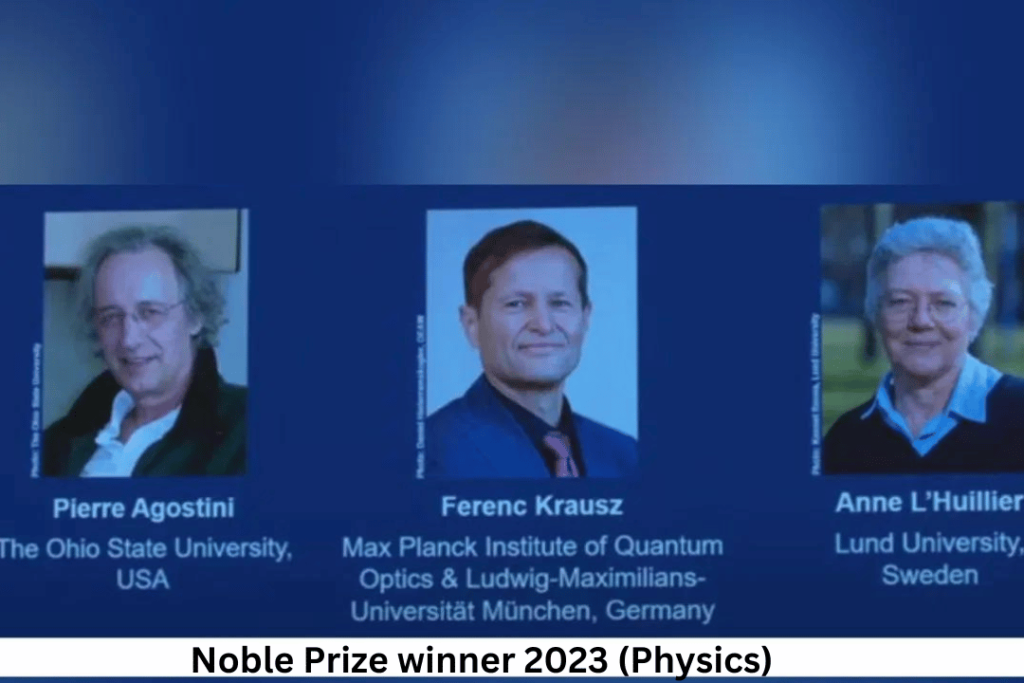Updated on 09 October, 2023:
Nobel Prize Awardee 2023:
Economics:
On Monday, the Nobel Memorial Prize in Economic Sciences was bestowed upon Claudia Goldin, a distinguished professor from Harvard University, in recognition of her groundbreaking contributions to enhancing global comprehension of women’s advancements in the labor force.
Notably, Ms. Goldin becomes only the third woman to have received the prestigious economics Nobel Prize since its inception in 1969. Remarkably, she is the first female laureate to be honored with the award individually, without having to share it with co-recipients.
Chemistry:
The Nobel Prize in Chemistry 2023 was awarded to Moungi Bawendi, Louis Brus and Alexei Ekimov “for the discovery and synthesis of quantum dots.”
Independently of each other, Ekimov and Brus succeeded in creating quantum dots, and Bawendi revolutionised the chemical production.

Quantum dots now illuminate computer monitors and television screens based on QLED technology. They also add nuance to the light of some LED lamps, and biochemists and doctors use them to map biological tissue.
As on 03 October, 2023:
Physics:

Pierre Agostini, Ferenc Krausz, and Anne L’Huillier were honored with the prestigious Nobel Prize in Physics on Tuesday for their gorgeous studies and contribution for invaluable tools for delving into the intricate realm of electrons within atoms and molecules.
The velocity of electrons within atoms and molecules is so astounding that it requires measurement in “attoseconds.” The research endeavors led by these three esteemed scientists have clearly established the feasibility of observing and quantifying attosecond pulses, as asserted by the esteemed awarding committee.
To put it into perspective, an attosecond is an incredibly brief measure of time, amounting to one-millionth of a trillionth of a second. The Royal Swedish Academy of Sciences, the institution responsible for bestowing the physics prize, illuminates the magnitude of this temporal scale by highlighting that the number of attoseconds in a single second mirrors the number of seconds that have elapsed since the inception of the universe, a staggering 13.8 billion years ago.
The Nobel committee said, “Now that the attosecond world has become accessible,” through these revelatory scientific endeavors, these fleeting bursts of light can be harnessed as a powerful tool to carefully scrutinize, and comprehend the intricate movements of electrons.
As on 02 October, 2023:
Medicine:

Professors Katalin Kariko and Drew Weissman have been jointly given the Prize for their resounding contributions to mRNA vaccine technology. This innovative method, which was experimental before the COVID-19 pandemic but has since been administered to millions worldwide, played a pivotal role in the rapid development of vaccines during one of the most important public health crises in recent history.
The Nobel Prize Committee recognized their instrumental role, saying, “The laureates contributed to the unprecedented rate of vaccine development during one of the greatest threats to human health in modern times.”
Use of mRNA Technology:
The mRNA technology was originally explored by Drs. Kariko and Weissman are not limited to combating COVID-19. It is currently under extensive study for applications in various other diseases, including cancer. This recognition underscores the immense potential of mRNA technology in revolutionizing vaccine development and its broader effects in the field of medicine.
The conventional method of vaccines typically involves using weakened or inactivated forms of the virus or bacteria or utilizing fragments of the infectious agent. In contrast, mRNA vaccines employ a completely different strategy. They function as a molecular translator within the human body, converting genetic instructions from DNA into the proteins important for bodily functions.
By engineering mRNA to produce specific viral or infectious components, the immune system is prepared to identify and combat these foreign elements effectively.

While the idea of mRNA vaccines held promise, there were challenges to overcome in the early stages of development. Researchers needed to refine the technology to make the intended proteins in sufficient quantities without triggering dangerous levels of inflammation, as observed in animal tests. This important breakthrough paved the way for the successful application of mRNA vaccine technology in humans.
During the COVID-19 pandemic, both the Moderna and Pfizer/BioNTech vaccines depended on mRNA technology to produce the virus’s spike protein, a key target for the immune system’s response. Professors Kariko and Weissman’s journey began in the early 1990s when they were colleagues at the University of Pennsylvania, and mRNA study was considered a relatively niche area within the scientific community.
The Nobel Prize, one of the world’s most important awards, is given in various categories, including physics Oct 3, chemistry Oct 4, literature Oct 5, and peace Oct 6, with each laureate getting 11 million Swedish crowns (approximately $1 million). The Nobel Prize for economics will be revealed on October 9. Established by Swedish inventor Alfred Nobel in his will, the Nobel Prize seeks to recognize individuals or groups whose contributions have given the greatest benefit to humankind.





